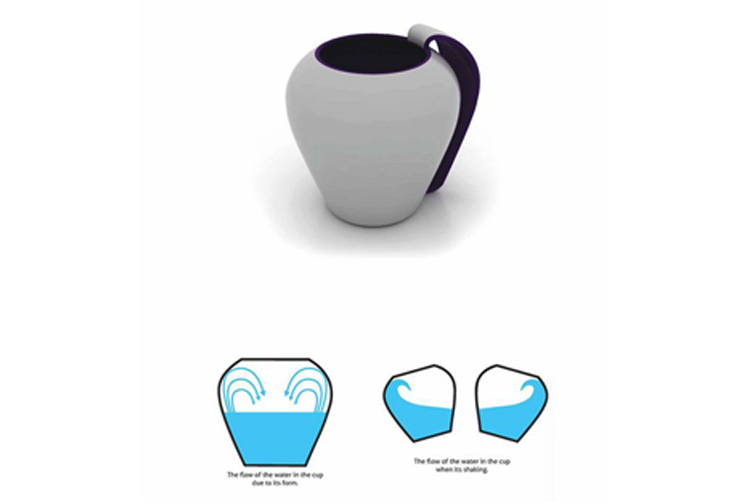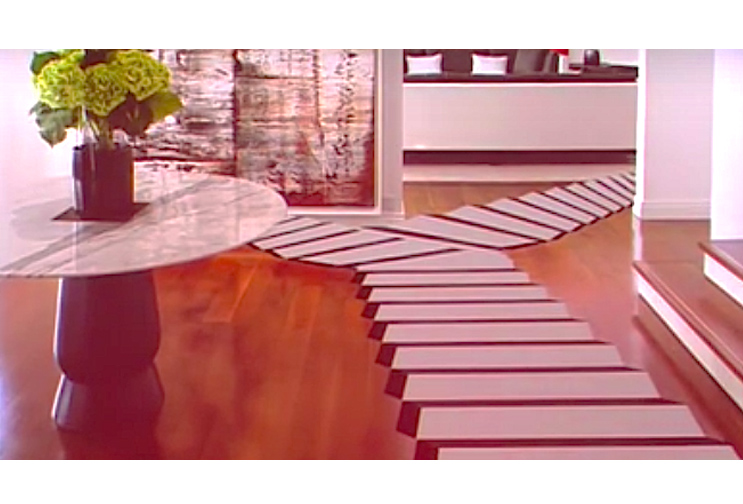
An invention of Simplest and Human-Centric Solution for People with Parkinson’s



Simple and creative solutions have always left us in awe and often proved to be best for complex problems. And the live example of this statement is the invention of ‘The Staircase Illusion and No Spill Cup.’ This invention was a result of classroom project called ‘Design for Special Needs’ of Mileha Soneji, a Product Design student of MIT Institute of Design.
“I understood the value of interviews, observations and asking the right questions and working on this project with empathy. MIT Institute of Design taught me how to design “simple” but effective solution. I have learned to get to the crux of the problem and then solve it with frugal innovation. I really believe in this grass-root level design and live by the philosophy that was ingrained in me from my study from MIT, that Simple designs that fit the user’s context and need are the most impactful.”
Inspired by her uncle who was diagnosed with Parkinson’s, a disease with a disorder of the central nervous system that results in rigidity, shaking, slowness of movement and difficulty in walking, Mileha invented two highly conceptual yet highly innovative products that gave her uncle the confidence to interact and sit with people, which he use to retreat earlier to avoid embarrassment.
In her TED talk, she stated, “As a designer, we always dream of designing solutions that solve multifaceted problems. One solution that solves it all. But it need not be like that, you can target simple problems and start looking solutions for them. And eventually make big impact.”
“My aim was not to cure Parkinson, but make everyday task much easier.”
She empathizes with her uncle embarrassment to drink coffee or tea in public because of the tremors. So she designed ‘No Spill Cup’, which is curved shaped at the rim and opening. It deflects the liquid back into the cup rather than spilling it out. The handle of the cup is bigger giving extra grip at the finger for easy handling. The cup is featured with every small details to help people with tremors.
“And the idea for the ‘Staircase Illusion’ just came, when I visited to my uncle. I noticed that he was moving with difficulty. But a surprise was that he walked smoothly while climbing up and down stairs than in flat ground. That moment inspired me to try something like an optical illusion. So, I took black and white sheets of A3 paper and stuck them together with tape. And it worked! When I put the illusion on the floor, we noticed him walking more smoothly and with confidence across the area where the illusion was placed.”
With her accessible designed products, Mileha want to reach out to people with special needs. She wants everyone to adapt these products and make people with disabilities feel welcomed.
